Lubrication Blog
Holiday Wine Gifts...Now in Stereo
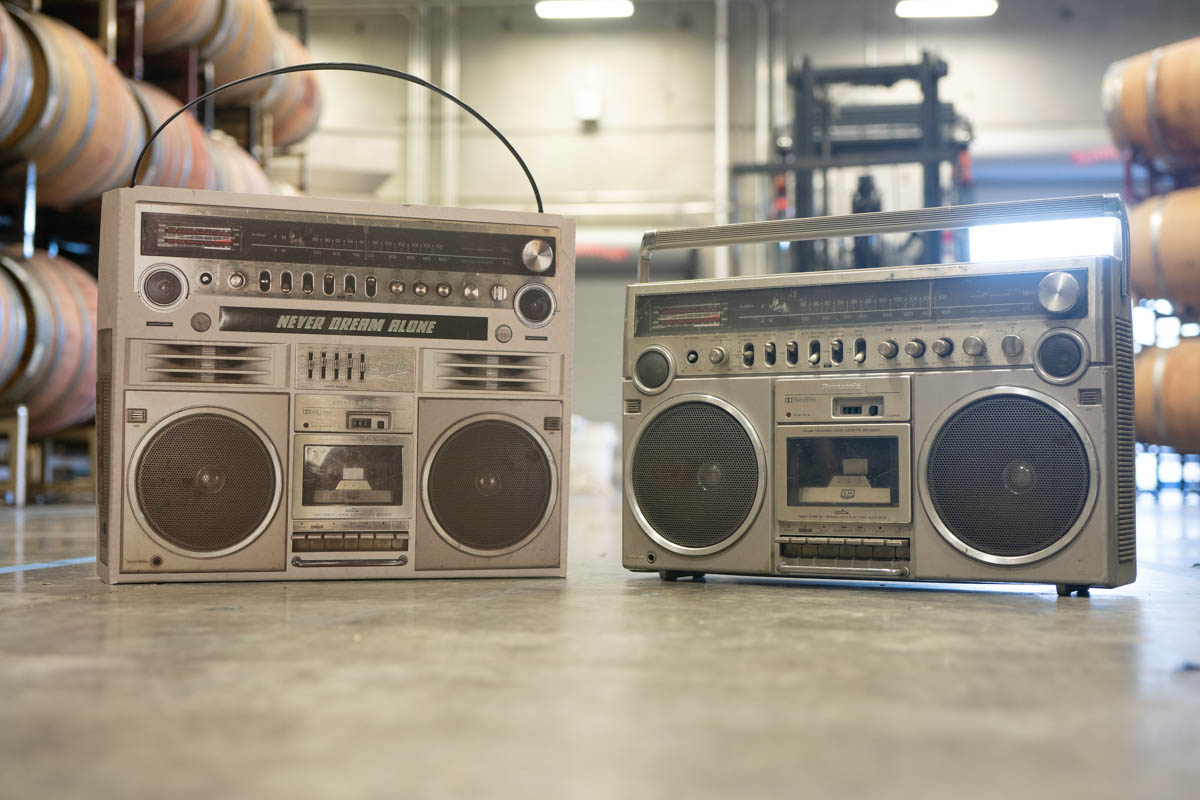
You know what's cooler than a wine gift this holiday season? A wine gift that comes in a boombox! You heard that right. No longer must wine be gently wrapped in tissue paper and tucked away between bits of crinkly paper (it's called "sizzle," by the way) and bows. You can now give a wine gift that rocks.
Like all good things, the boombox was born out of the 1970s. The advent of the cassette format and batteries inspired a new concept for portable music players that could be brought to the beach or basketball courts to jam out with on the go. By the 1980s, the popularity of the boombox had exploded, proliferating hip-hop culture and finding its way into every teen's bedroom. Hoisted upon the shoulders of The Beastie Boys, LL Cool J, and The Clash, the boombox became an American icon.

Over time the size and weight of boomboxes exploded to accommodate bigger, booming bass and features like equalizers, dual cassette decks, and tricked-out sound meters. While the 1990s would introduce CD trays, remotes, and plastic gimmicks, our hearts will forever recognize the classic Panasonic stereos as the most iconic boombox of the early '80s.
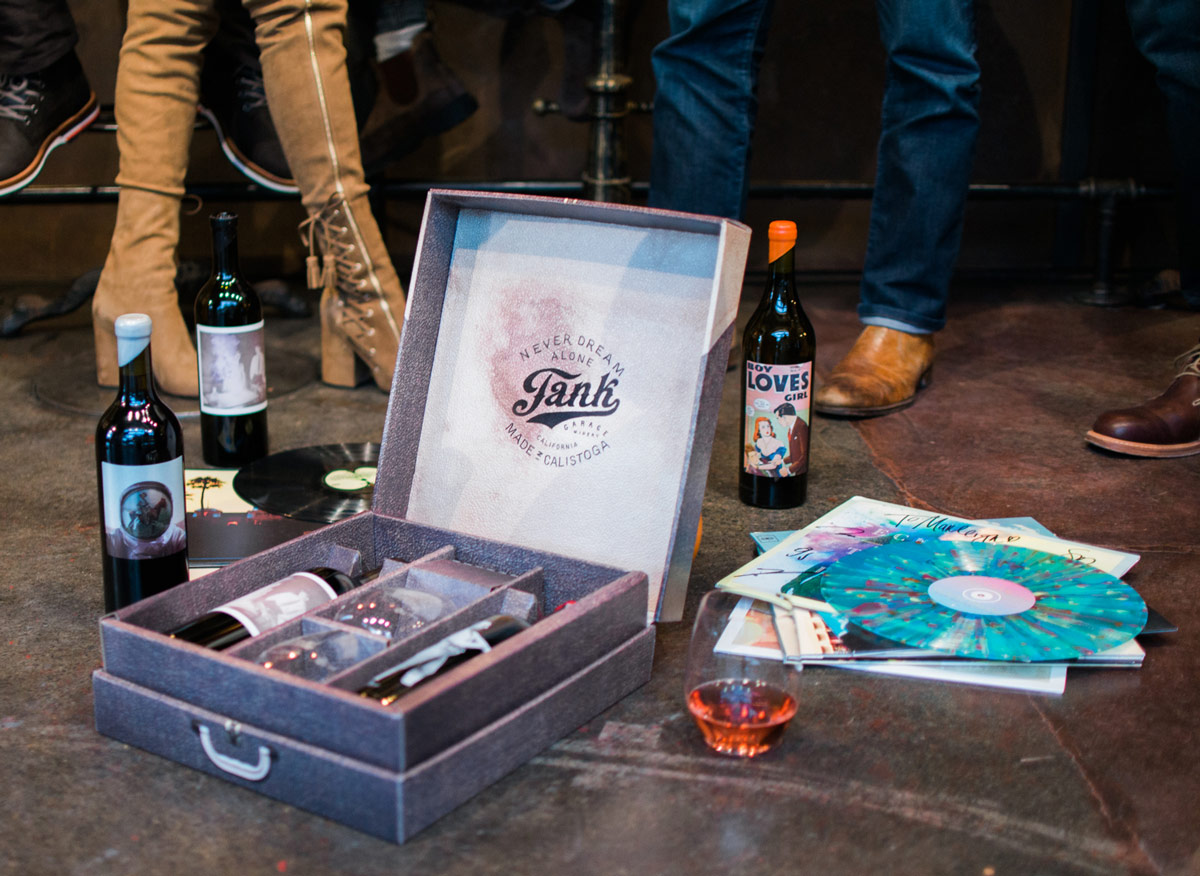
Which, of course, is why we chose it as the successor to our beloved Hi-Fi gift boxes that recreated a portable record player from the '60s. We needed to get bigger, we needed to get louder, and we were hellbent on realizing this dream.
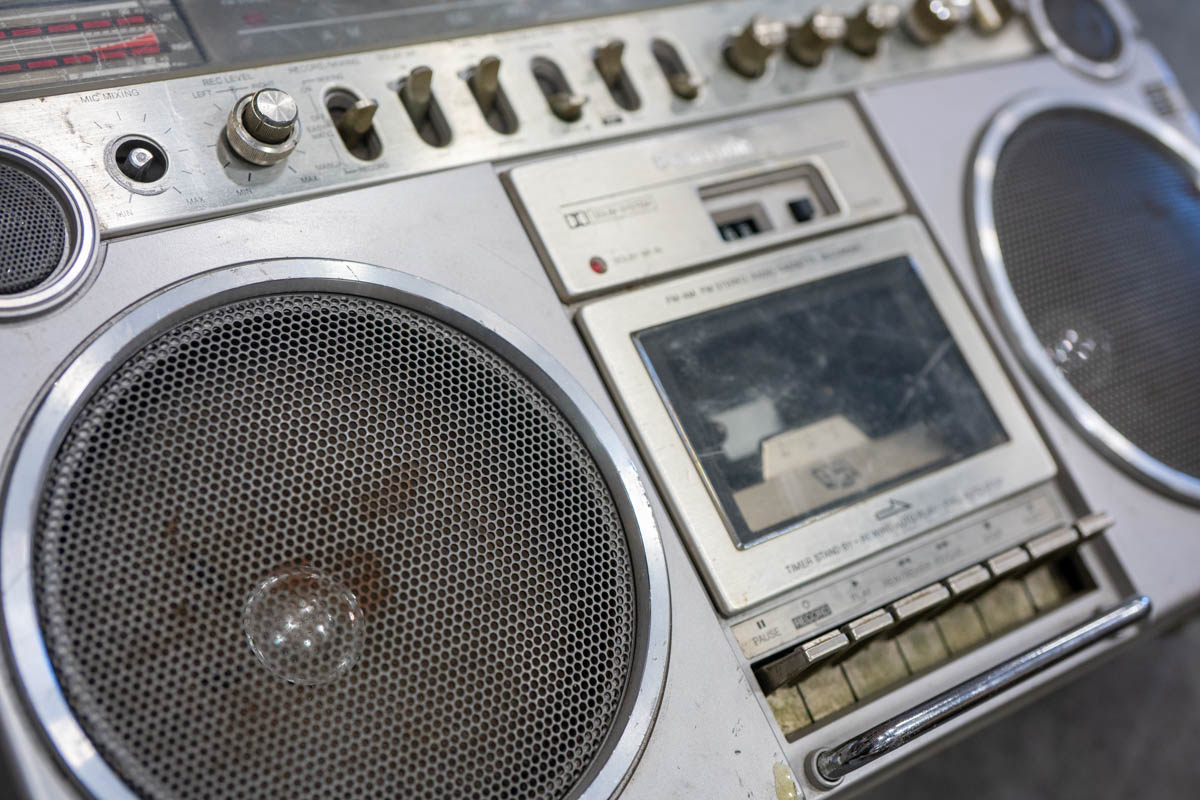
Modeled after the legendary Panasonic RX-5500, we painstakingly transplanted our favorite elements of this boombox to our cardboard box design. The tape went in the middle, some big speakers for both channels and some knobs here and there. It slowly took shape. But there was one thing we needed to make this thing legit: a handle. And we'll have you know we went to the far reaches of the pandemic world to find one that fits the bill.
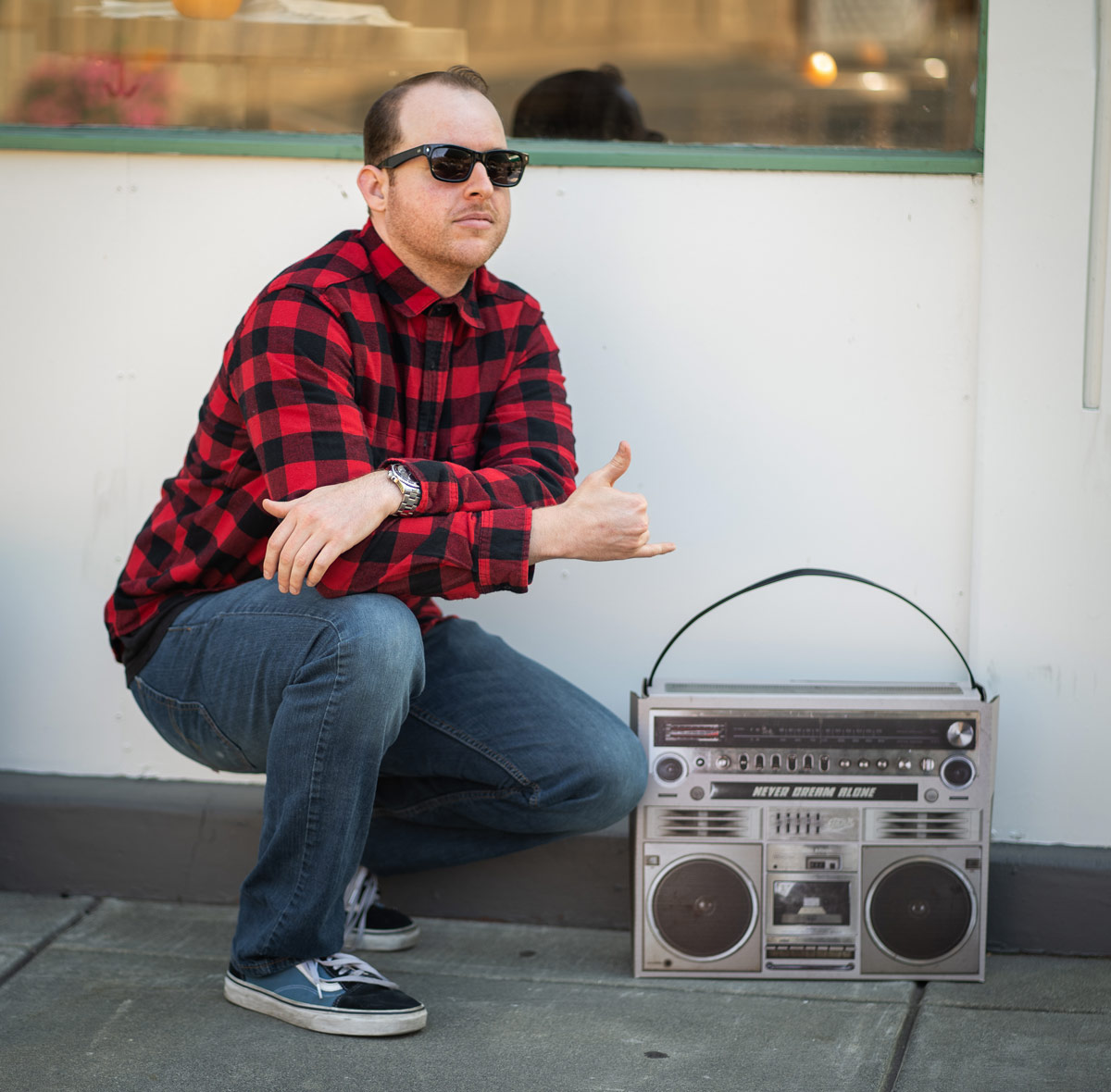
After nearly a year of waiting, our boomboxes finally arrived, and we must say, they are fucking sick. Not only do they look like the real deal, but once you load them up with delicious Tank wines, it feels like the real deal too. The only thing we couldn't pull off was getting it to play music, but we gotta leave something for the next revision, right?
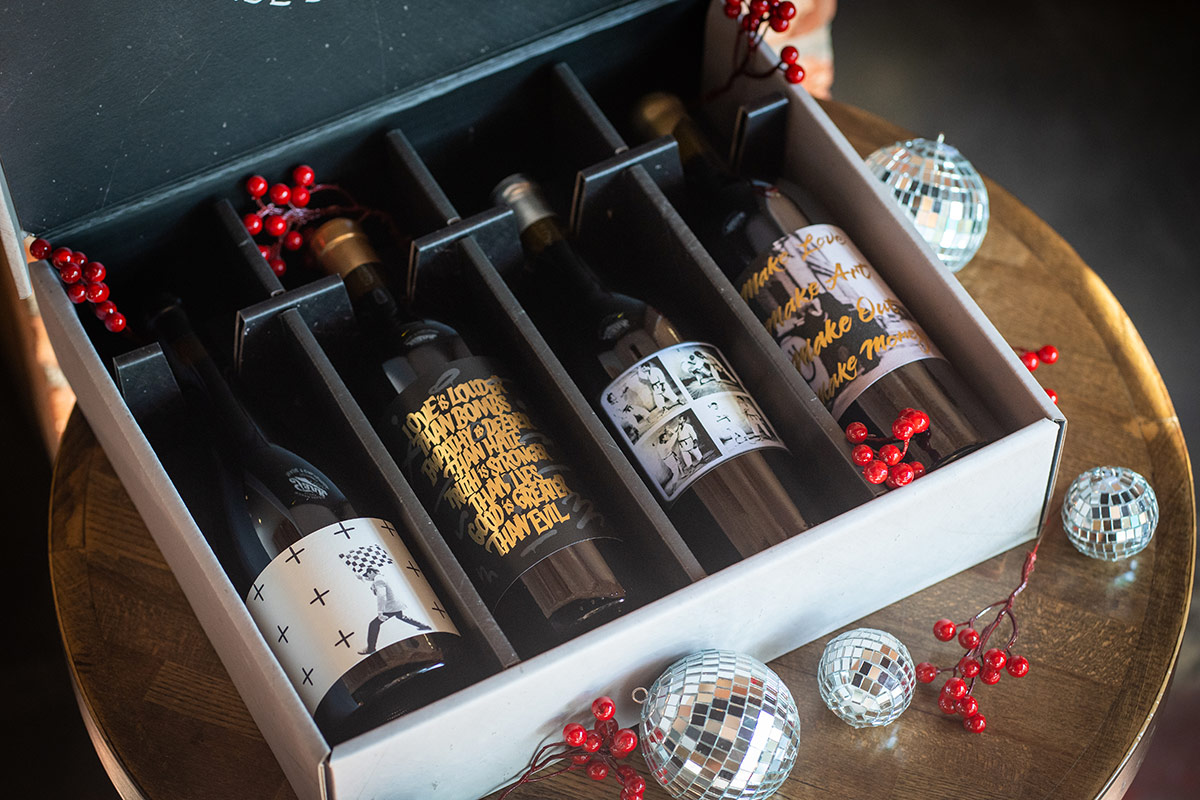
Starting this holiday season, we will have curated gift options pre-packaged in our vintage boombox gift boxes. Your friends, family, side piece, and work colleagues will all be blown away when they open up this cool gift box to discover California's coolest wines inside. To explore the 2022 options, just follow the button below.
Even Fckboys Gotta Eat
If you've never had Enfrijoladas before, get ready for an orgasmic party in your mouth. A tasty enchilada smothered in yummy bean sauce and stuffed with your favorite filling, this recipe packs a whole lot of flavor and won't break the bank. We made ours with chorizo and potatoes, and HOT DAMN was it delicious. Scroll below for the recipe.
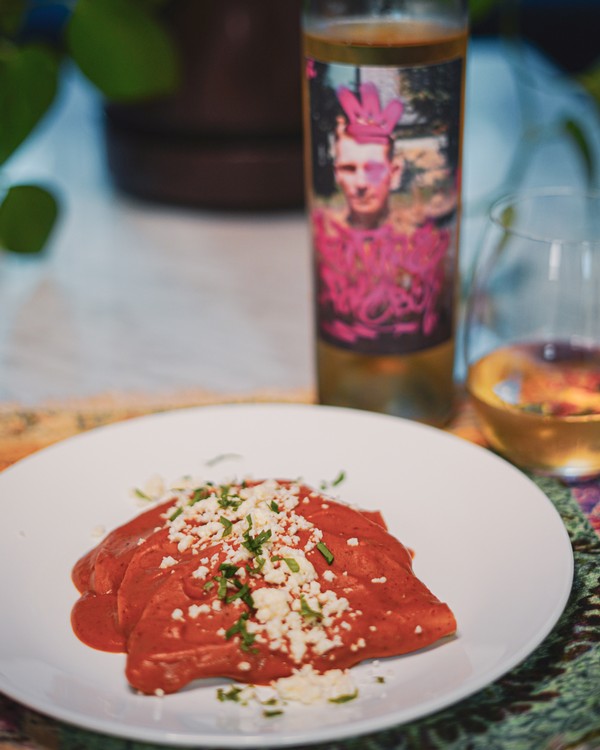
Chorizo and Potato Enfrijoladas
Serves 4
Ingredients:
oil (for frying)
10 corn tortillas
For the bean sauce:
3 cups cooked pinto beans
1 cup bean broth
1 can chipotle pepper in adobo sauce (7 ounces)
1/2 tbsp salt
For the filling:
2 cups potatoes, small dice
4 oz Mexican pork chorizo
2 10-oz packages Queso Fresco crumbled
For the topping:
onion, finely diced
avocado, sliced
cilantro, finely chopped
Method:
Step One
Add pinto beans, bean broth, chipotle, and salt in a blender. Blend until smooth, and if it's too think, add a bit more broth until it reaches a sauce-like consistency. Taste, and adjust seasonings to taste as needed. Note: If you're sensitive to spice, reduce the amount of chipotle added to the mixture. We used pinto beans for our recipe, but black beans can also be used.
Step Two
In a large skillet, heat 2-3 tbs of oil over medium heat until it begins to ripple. Add potatoes and brown on all sides until cooked through. Remove from pan and add pork chorizo, cooking over medium-high heat for 8-10 minutes, breaking up the meat into small, bite-sized pieces. Combine chorizo and potatoes and set aside for later use.
Step Three
Heat oil in a clean skillet over medium heat. Working in batches, fry tortillas for approximately one minute per side and place on a paper towel to soak up any excess oil.
Step Four
To assemble, there are two different options. Option 1: Dip a tortilla into the bean sauce and add a spoonful of cheese and a tablespoon of the chorizo and potato mixture. Fold over to close and cover with foil to keep warm. Repeat with remaining tortillas. Option 2: Enfrijoladas can also be assembled by adding fillings first and then topping with bean sauce. We went with option 2 since it's a little less messy but the choice is yours.
Step Five
Garnish with onion, avocado and cilantro. Serve immediately and enjoy!
Note: Enfrijoladas can be stored for up to 3 days in the fridge or up to 4 months in the freezer.
Based on a recipe by Maggie Unzueta
Harvest 2022 Update
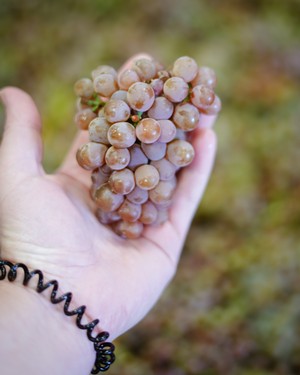
Our first harvest of 2022 began in early August with 10 tons of Gewürztraminer from the McCormack Ranch vineyard outside Rio Vista in Solano County. Since then, Bertus, Matteo, and the rest of the cellar team have been working day and night trucking grapes, pressing fruit and tending to our fermentation tanks barrels. Harvest is hard work, and our boys have been busy.
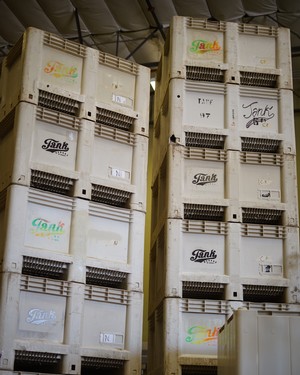
The Stats
290 Tons Harvested
36 Varieties
40 Vineyard Sources

Foot-Stompin'
If there's one guarantee for our cellar interns, it's that they'll be stomping A LOT of grapes. While many winemaking cellars solely utilize mechanical presses for their fruit, our philosophy is that foot-stomping provides a more delicate approach than a mechanical press and allows for stem inclusion, which results in more complexity in the wine. We love utilizing this method for our skin-fermented white wines, light red wines, and sometimes even Cabernet Sauvignon! More than a third of the grapes that pass through our cellar are foot-stomped.
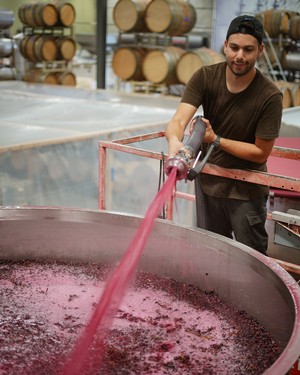
Punch-downs and Pump-overs
Every day (and sometimes twice a day), each of our fermentation tanks and bins goes through a punch-down or pump-over process. Throughout fermentation, the grape skins and stems float to the top of the vessel as a large cap and we need to make sure our fermenting juice is properly mixed up.
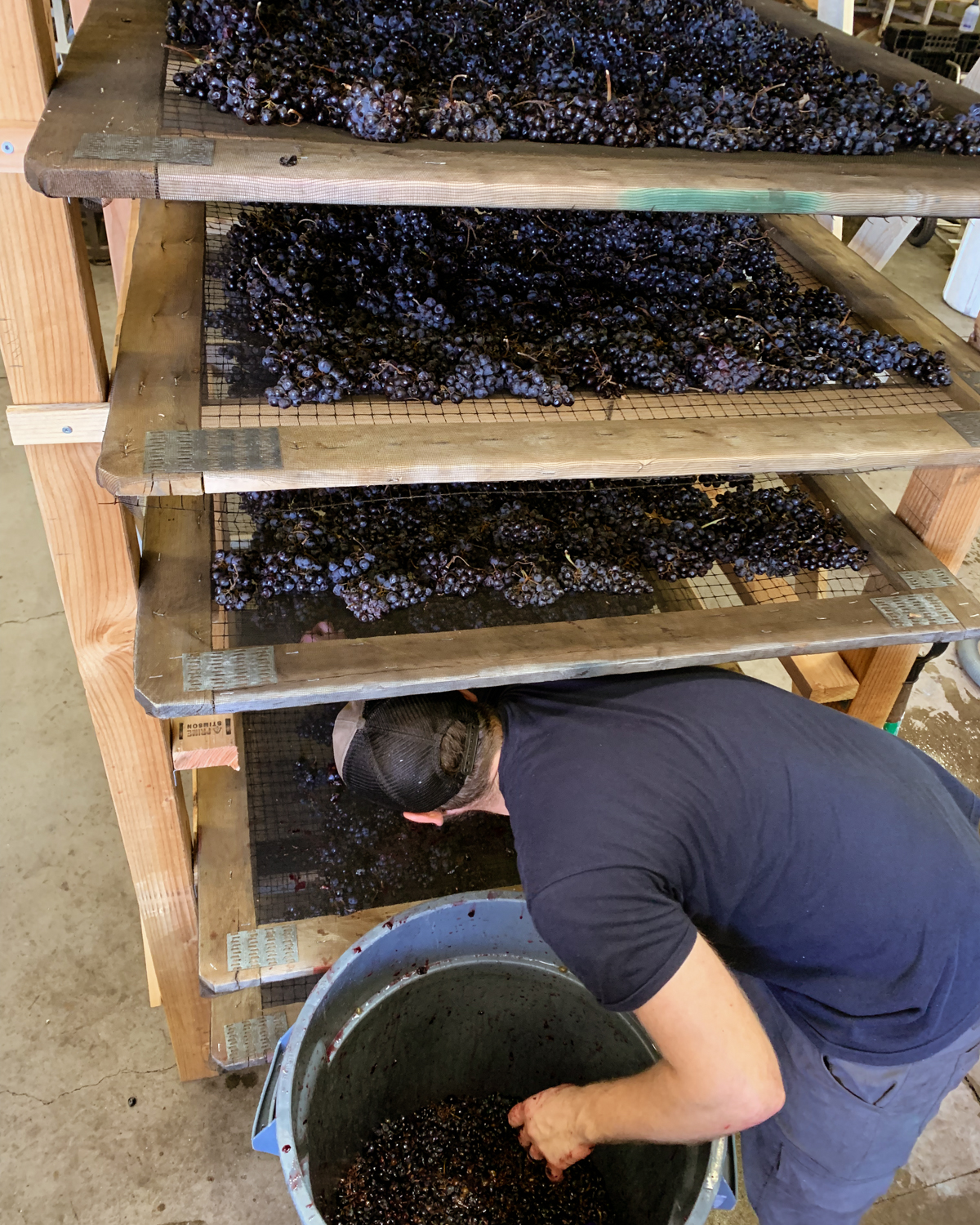
We're trying out appassimento!
Italian wines have always been near and dear to our hearts, and this year, our assistant winemaker Matteo is taking the lead on a very special project. Appassimento wines, like the Italian Amarone, are made from partially dried grapes, which results in more concentrated colors, aromas and flavors in the wine. In the photo above, Matteo is carefully laying out each cluster onto screens for the drying process. We can't wait to taste the resulting wine!
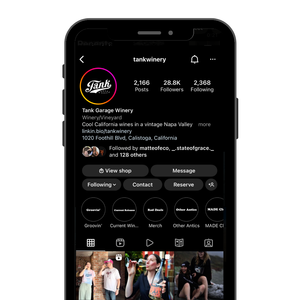
Follow Along
If you're into all things vintage, adventures, cool wines, and good vibes, you'll love our Instagram. Stay connected for behind-the-scenes looks at cellar antics, new bottle releases, deals, giveaways, and more! Tap the Instagram logo below to give us a follow.
Occhiali da Sole X Pasta with Roasted Tomato Sauce
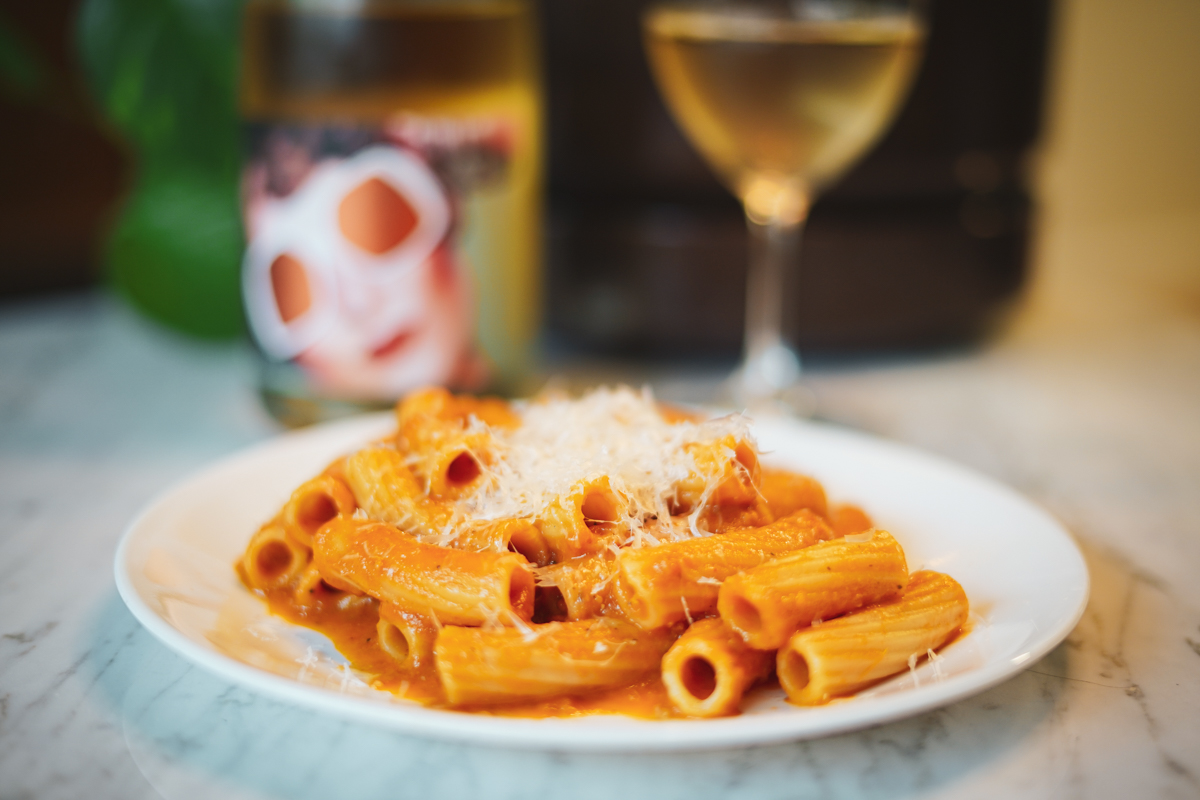
One of our favorite things about the harvest season is the sharing of abundance with friends, family and the community. We were gifted a bounty of heirloom tomatoes from a friend's garden this week and we had the perfect recipe in mind to use them: a simple roasted tomato sauce over pasta paired with crisp white wine.
For this recipe, we look towards our newly released Occhiali da Sole, a skin-contact Trousseau Gris from Fannuchi-Wood Road Vineyard in Russian River Valley. Tap the button below for the recipe, and start cooking!
Stock up on any $250+ online order and score $25 off your next order with code: OCCHIALI at checkout through 9/15.
Roasted Tomato Sauce
[time: 30 min] serves 4
- 1 head of garlic, peeled
- 2 shallots, roughly chopped
- 2-3 sprigs of fresh oregano (or 1 tsp dried)
- 10 fresh basil leaves, torn or roughly chopped (or 1 tsp dried)
- salt
- pepper
- parmesan, grated
preheat oven to 400°
2. Place peeled and cored tomatoes cut side down on the baking sheet and drizzle with 1-2 Tbs olive oil.
3. Roast tomatoes, garlic and shallots in 400° oven for 30 minutes.
4. Add oregano and basil to pan and continue roasting for 10 minutes or until the tomato skins begin to loosen.
5. Allow pan to cool and gently remove tomato skins and herb stems and discard.
6. Add roasted items to a blender and generously season with salt and pepper to taste. Pulse until smooth and strain to remove seeds (optional).

What the Heck is Trousseau Gris?
Planted in 1981, this Russian River Valley vineyard is home to the last plantings of Trousseau Gris in the US. Gaining access to Fanucchi-Wood Road Vineyard's scarce fruit is like finding the holy grail.
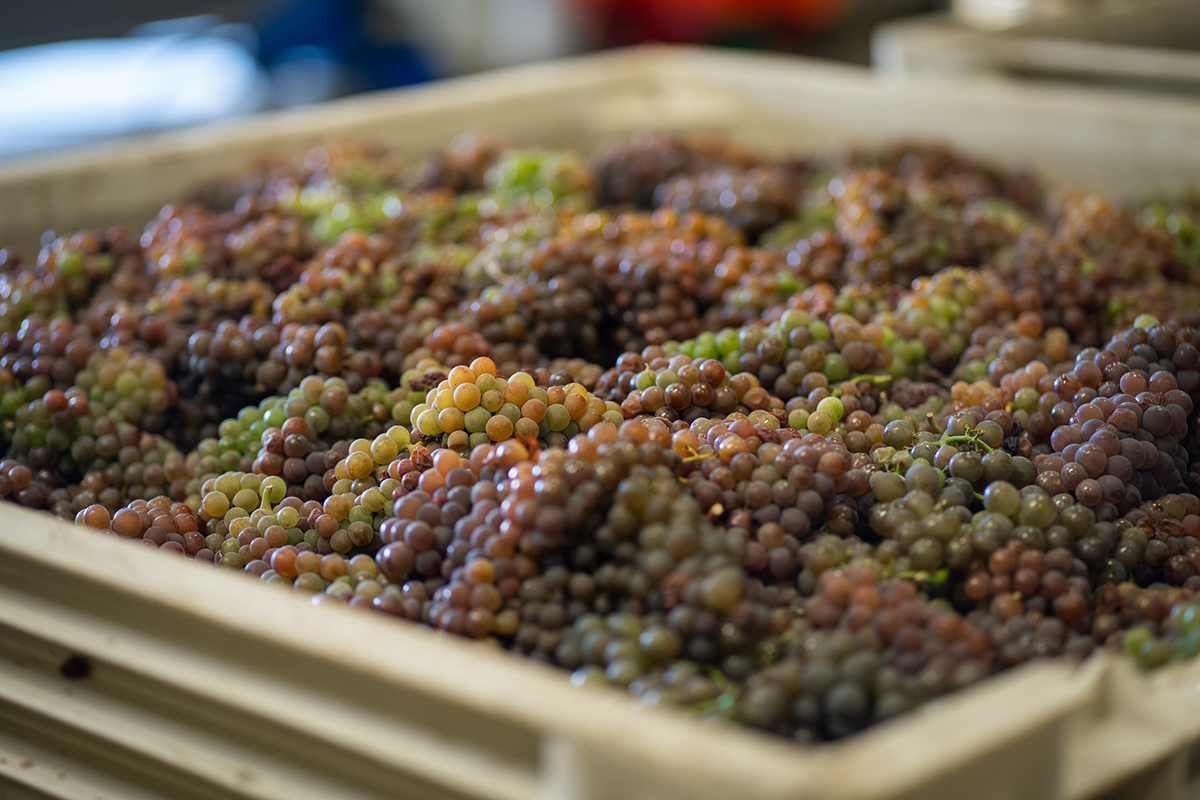
Just off of the old Wood Road in the town of Fulton is the Fanucchi-Wood Road Vineyard in Sonoma County. It is dry-farmed and has been hand-tended by the Fanucchi family for the last 29 years.
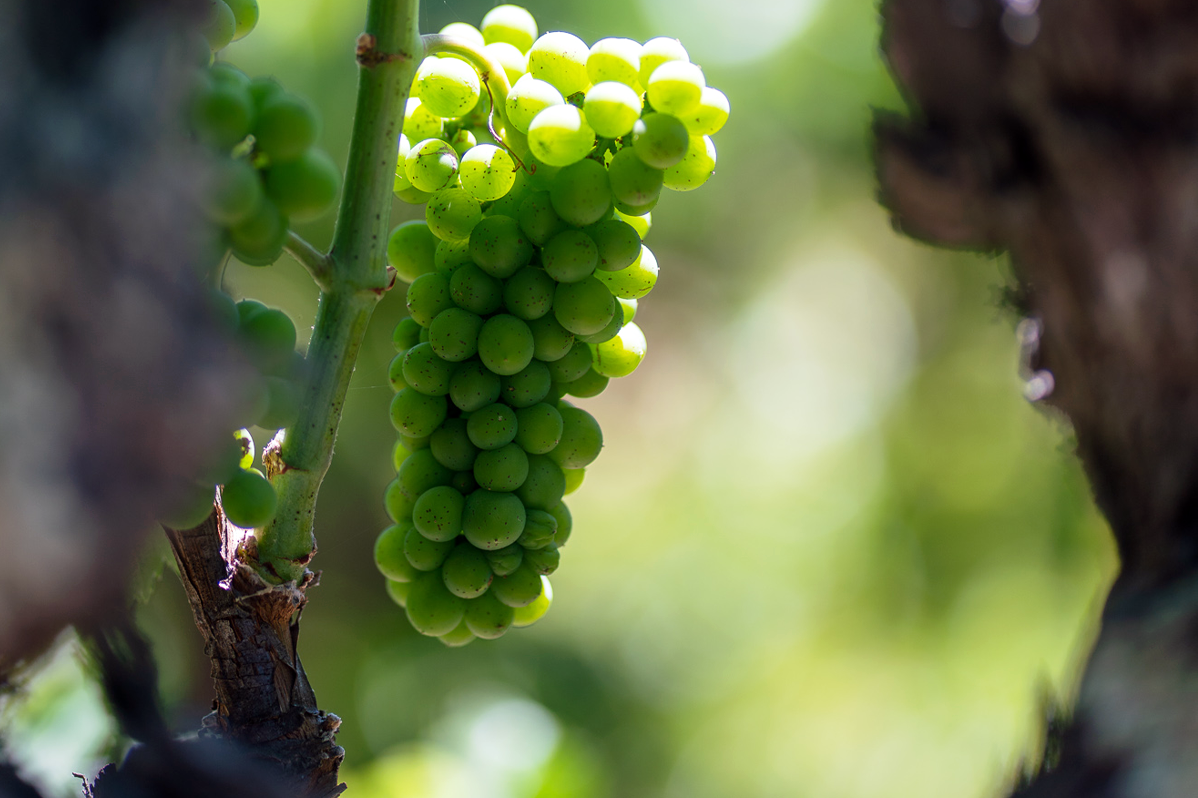
The Fanucchis have raised the gnarled, head-trained vines from ground level to chest height to provide greater sun exposure and air circulation, enhancing the production of high-quality, old vine fruit. Planted in sandy loam soil and organically farmed, these precious vines exist not only because they are important to the world of viticulture, but because they are essential to the Fanucchi legacy.
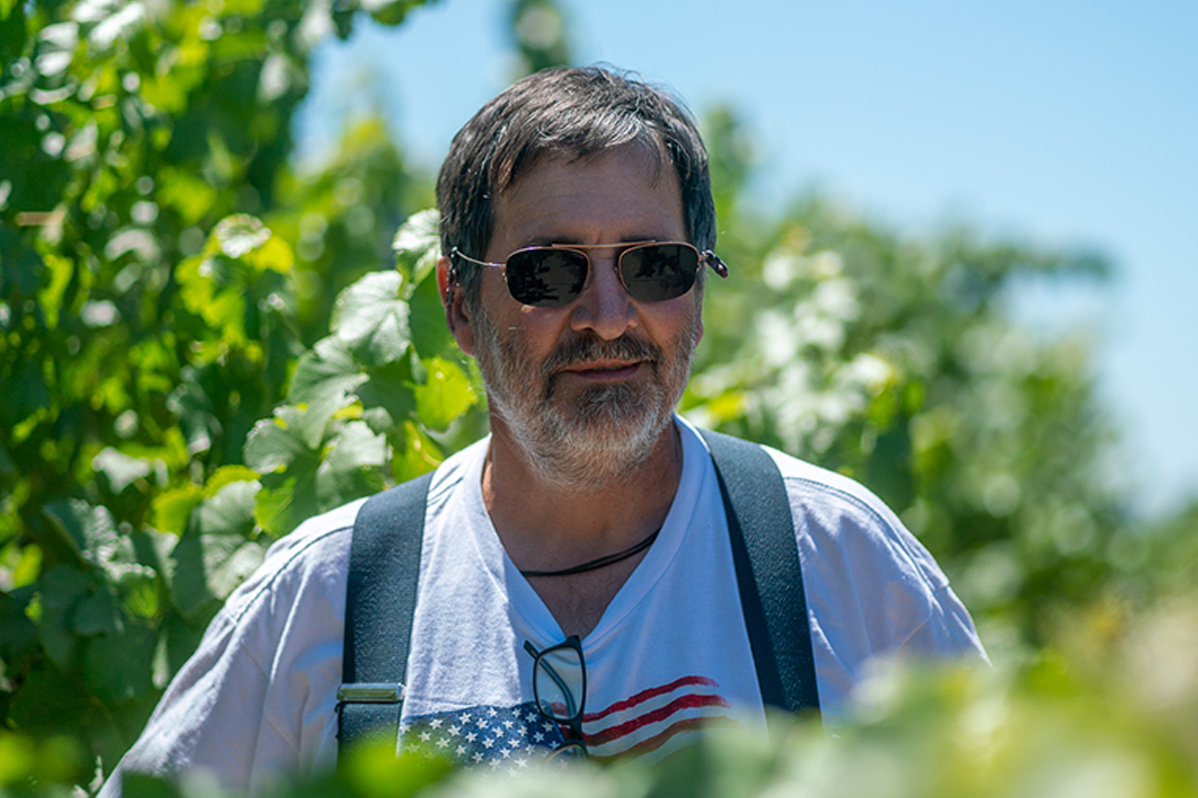
Peter's role as a grape grower started in childhood, working alongside his father Arcangelo who had long dreamt of farming grapes and had purchased an old Italian field blend vineyard in the early 1970s. After discovering some existing plantings of Trousseau Gris thriving in their vineyard, they together decided to plant a small block in 1981. But just three years later, before a single harvest, Arcangelo suddenly and tragically passed, leaving a 21-year-old Peter to carry on their shared legacy.
We’re really grateful to be a part of it.
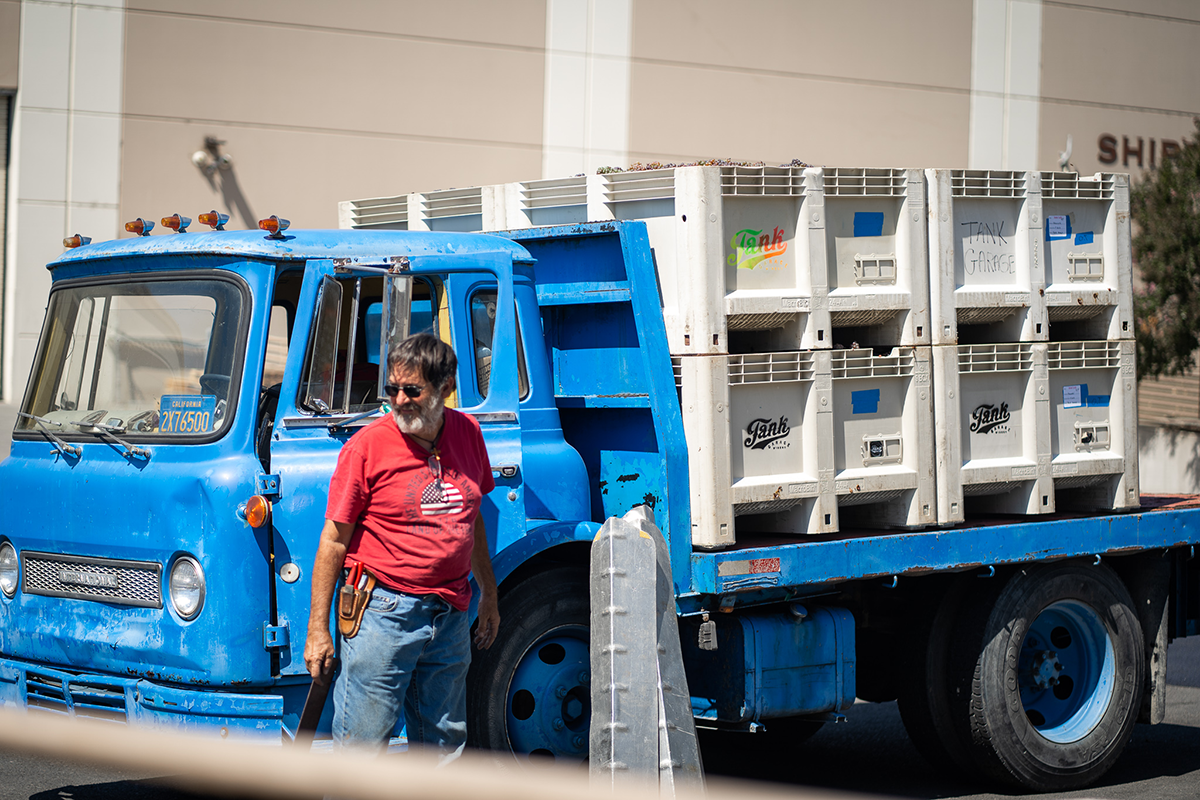
Interested? You’re in luck. We harvested the highly coveted Fanucchi Trousseau Gris on September 1st, 2021, some of the first fruit we brought in for last year’s harvest. After spending 1 year in neutral oak barrels, we released what can only be described as the best Trousseau Gris we've ever made.
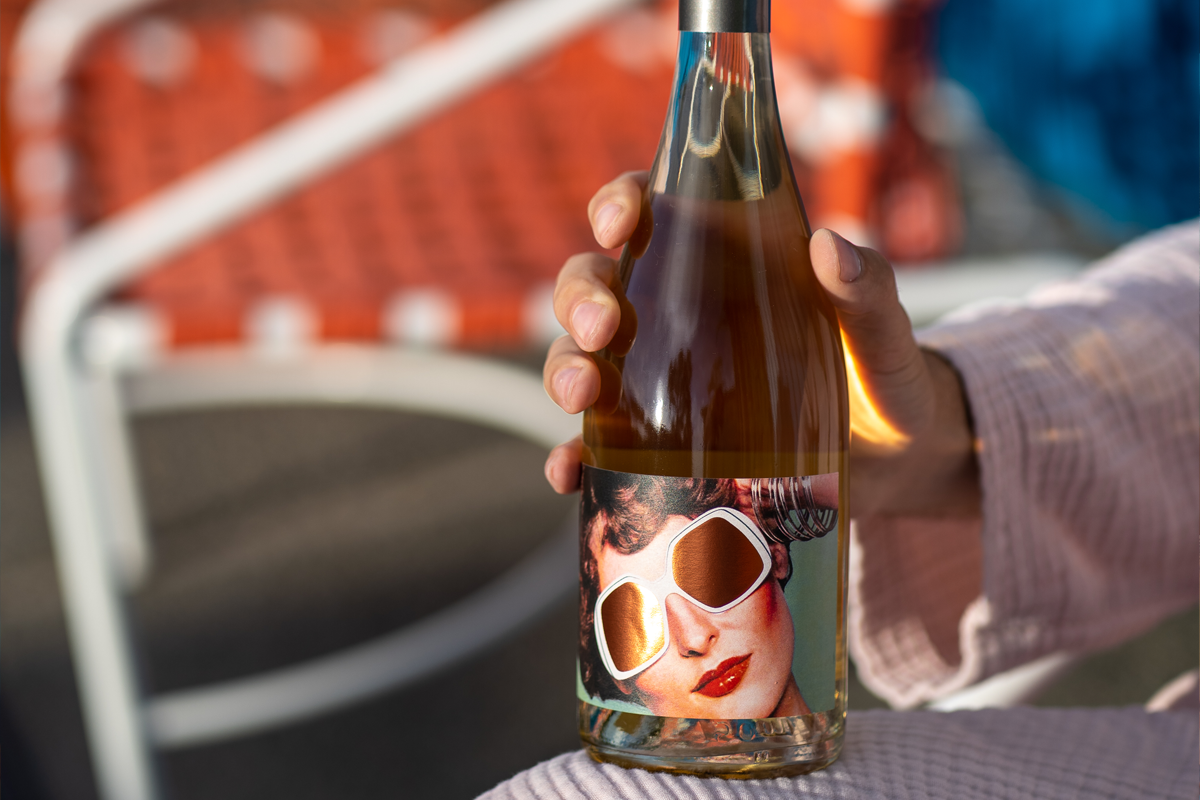
Perfect for lounging in the last of the late-summer sun, Occhiali da Sole is a reminder to throw on some rose-colored shades and let all your troubles melt away. The color of a peachy-orange sunset with enticing aromas of rosewater and zesty citrus, this wine draws you in from the moment it hits your glass. On the palate, we get these mouth-watering flavors of lychee, earl grey tea, and a touch of cranberry. The balanced acidity with a slightly textural tannin structure makes this wine an ideal pairing for shellfish, poolside fare, or watching the sun disappear over the horizon.
How to Store Your Wine Bottles

Courtesy of @sammser
Whether you're building a new wine cellar in your estate or just bought a (hopefully) cool final sale wine rack from West Elm, you're officially in the business of cellaring wine. Congratulations!
But wine can be fussy and delicate, so let's create a game plan to assure our wine will store safely and age perfectly. Here are the things to keep an eye on when storing wine at home.
1. Keep temperature and humidity in mind
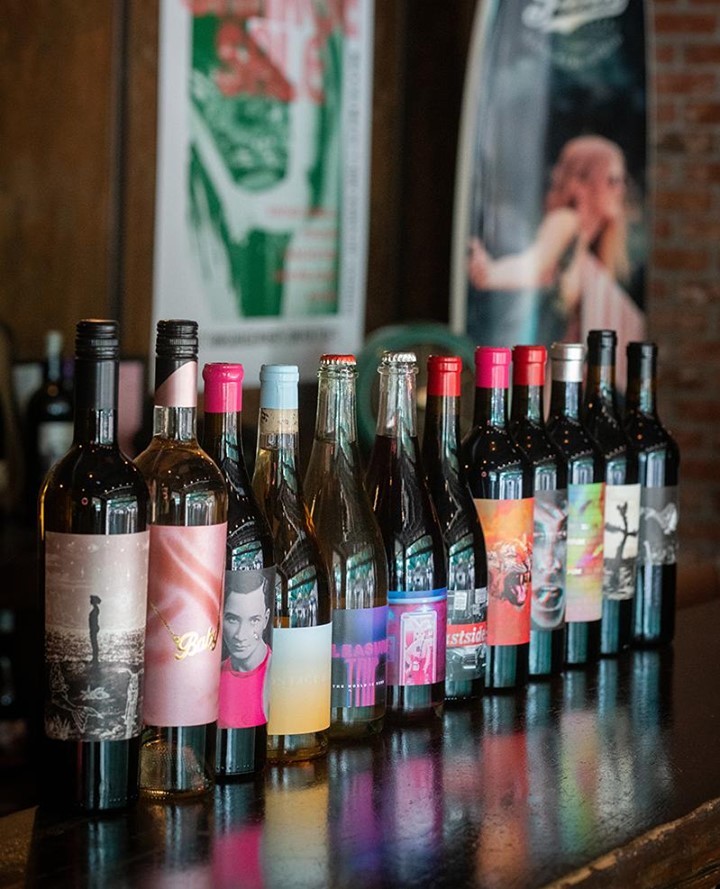
The single most important factor in preserving the quality of your wine will be the temperature and humidity. Ideally, wine should be stored at a consistent temperature of around 55°F, though anywhere between 50-65°F should be good. Make sure that temperature is CONSISTENT, as variations that cause the wine to heat up or cool down over and over rapidly will damage the wine. Oh no!
Wine also likes moderate humidity, and overly dry or moist storage can damage the cork, which will, in turn, damage your wine. So if you live in Arizona or want to store your wine in a damp basement or under a sink, please consider another location or an appliance that can moderate humidity.
2. Limit sunlight and vibration
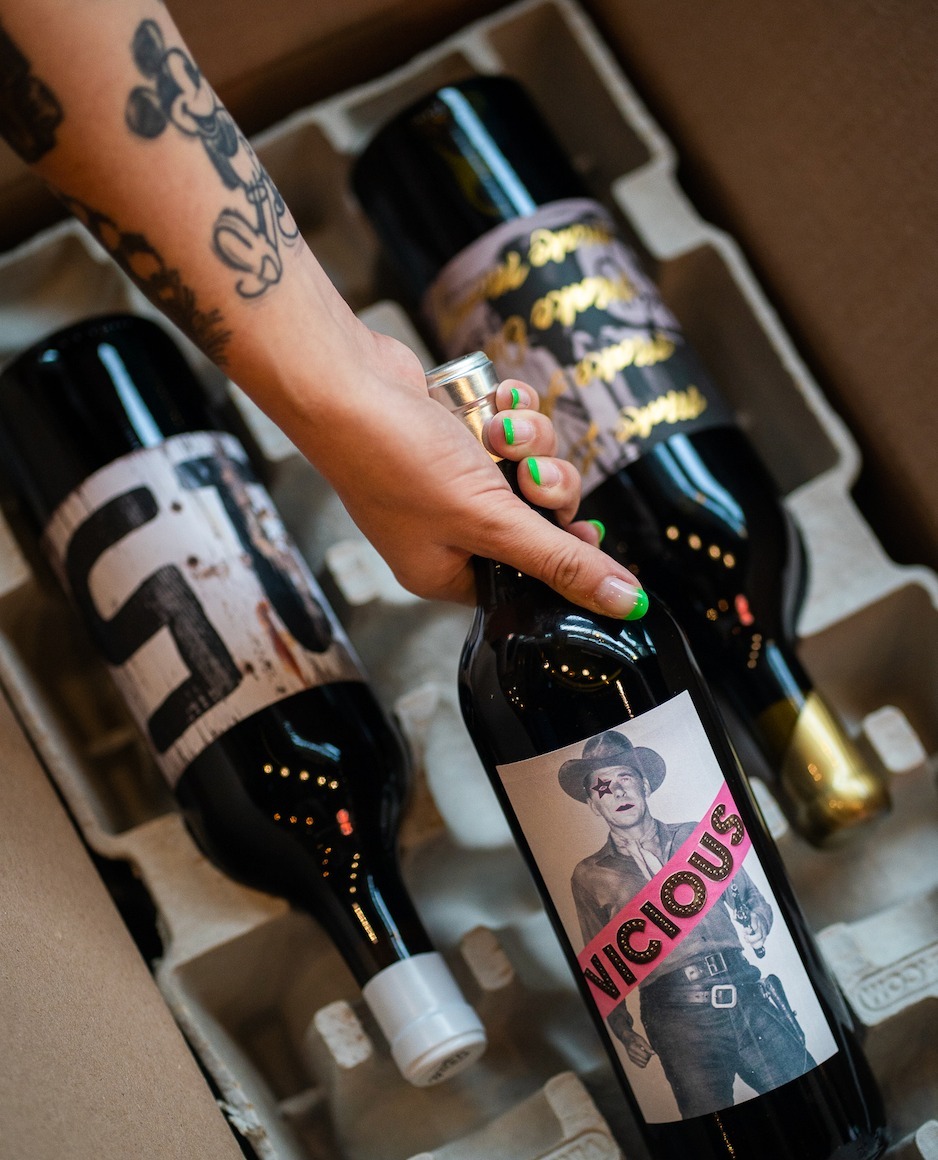
Wine doesn't like to be messed with. And though those decorative bottles in your kitchen look great, the UV from sunlight can damage the wine or warm the wine in a way that degrades quality. Additionally, if you are storing wine next to a subwoofer or dishwasher, make sure the bottles aren't constantly vibrating. So stash your wine away somewhere nice and dark and chill. For sparkling wines, we also suggest letting them relax for a few weeks after shipping.
3. Store wine in the right orientation

Still wine bottles are best stored on their sides to assure the cork remains moist and doesn't dry out, which will lead to excessive aging, seepage, or damage. But we recommend storing sparkling wines like pét-nat upright to allow any sediments to settle at the bottom of the bottle and reduce the chance of these carbonated beverages from turning into cannons if stored on their side.
4. Get a wine fridge

A good wine fridge can solve most of the problems above for you, storing wine at an ideal temperature and climate and limiting light and vibration from reaching your bottles. The regular refrigerators you store your food in are not great options for long-term storage, as they tend to run cooler and dryer than wine fridges. When buying a wine fridge, there are great options for different sizes and budgets. Just make sure to get one with a good warranty.
Decanting 101
A $0 Trick to Make Any Bottle of Wine Taste Even Better
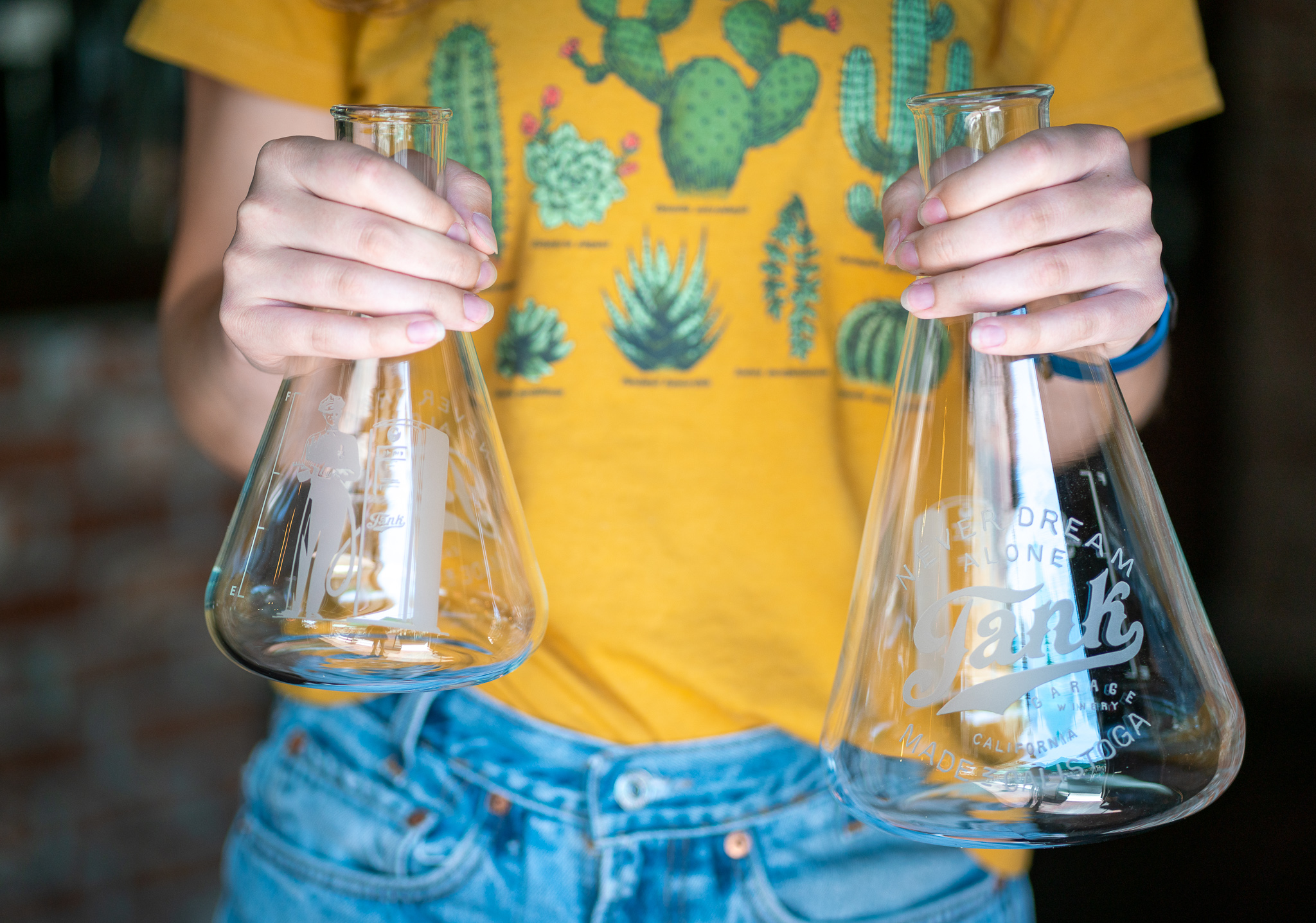
Decanting wine is the art of slowly pouring your wine from its original bottle into a glass vessel or decanter. Decanting has numerous benefits, including separating the sediment from the liquid. This is especially helpful for red wines, especially older wines and vintage ports, which hold the most sediment while young white wines contain the least. Sediment is not harmful, but tastes...unpleasant.
Decanting also enhances a wine's flavor by exposing it to fresh air and allowing it to "breathe." Aeration enhances a wine’s flavor by softening tannins and releasing the gases that have developed in the absence of oxygen. Decanting wine lets the dormant flavors and aromas to expand.
1. Sit 'Em Up
If you've been storing your wine horizontally (as you should 👏), now is the time to sit them upright to let any sediment settle to the bottom. Usually 24 hours before serving is recommended.
2. Pour
Slowly pour your wine into the decanter vessel. Our laboratory-quality glass Erlenmeyer flasks are perfect because they come in two sizes: 750 Ml or 1.5 L. If sediment starts pouring to the top, sit it upright again and let it settle. Repeat until there is no wine left in the bottle.
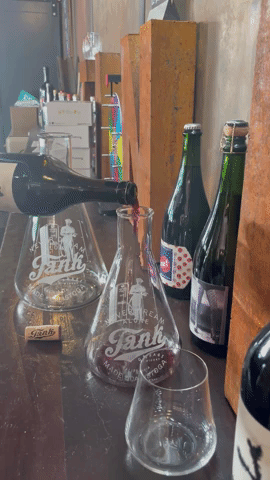
3. Swirl
Swirl the wine in the decanter and let it sit. A general rule of thumb is to decant most red wines for 15 minutes.

4. Serve!
Make sure to recork the decanted wine within 18 hours.
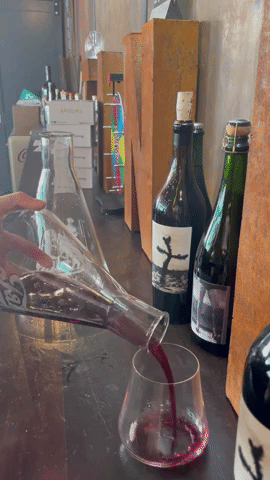
*Tips & Tricks*
Can you decant white wine?
Yes, especially orange wines or expensive white wines that taste a little tight. Generally speaking, you should try the wine before decanting to determine if it could benefit from a bit of oxygenation.
No decanter?
No problem. Any clean glass vase, carafe, pitcher, etc. will do. The vessel does not matter. The point is to introduce the wine to some air.
Broken Cork?
Occasionally, a cork may break, dispersing pieces you don’t want in your wine glasses. While pouring, the cork gathers near the neck of the bottle as you decant into another vessel (same as sediment). If the cork disintegrates, you can use a strainer while decanting to filter out the smaller pieces.
Which wines don't need decanting?
Sparkling! Generally speaking, sparkling wines thrive most when they have a bounce, which decanting and aerating reduce (like a flat soda). Although, lately it has become trendy to decant sparkling wines that need opening up. Always try your wine first before deciding!
How long should I decant?
Red Wines: 20 minutes to 2 hours, depending on the style
White Wines and Rosé: up to 30 minutes
Sparkling wines (if you dare): up to 15 minutes
Now through 7/31, take 5% off our decanters with code DECANTEVEN
🧪 Just be sure your goofy hump-backed assistant refills it with wine and not some experimental concoction 🧪
Softcore Red Wine X Ravioli all'arrabbiata
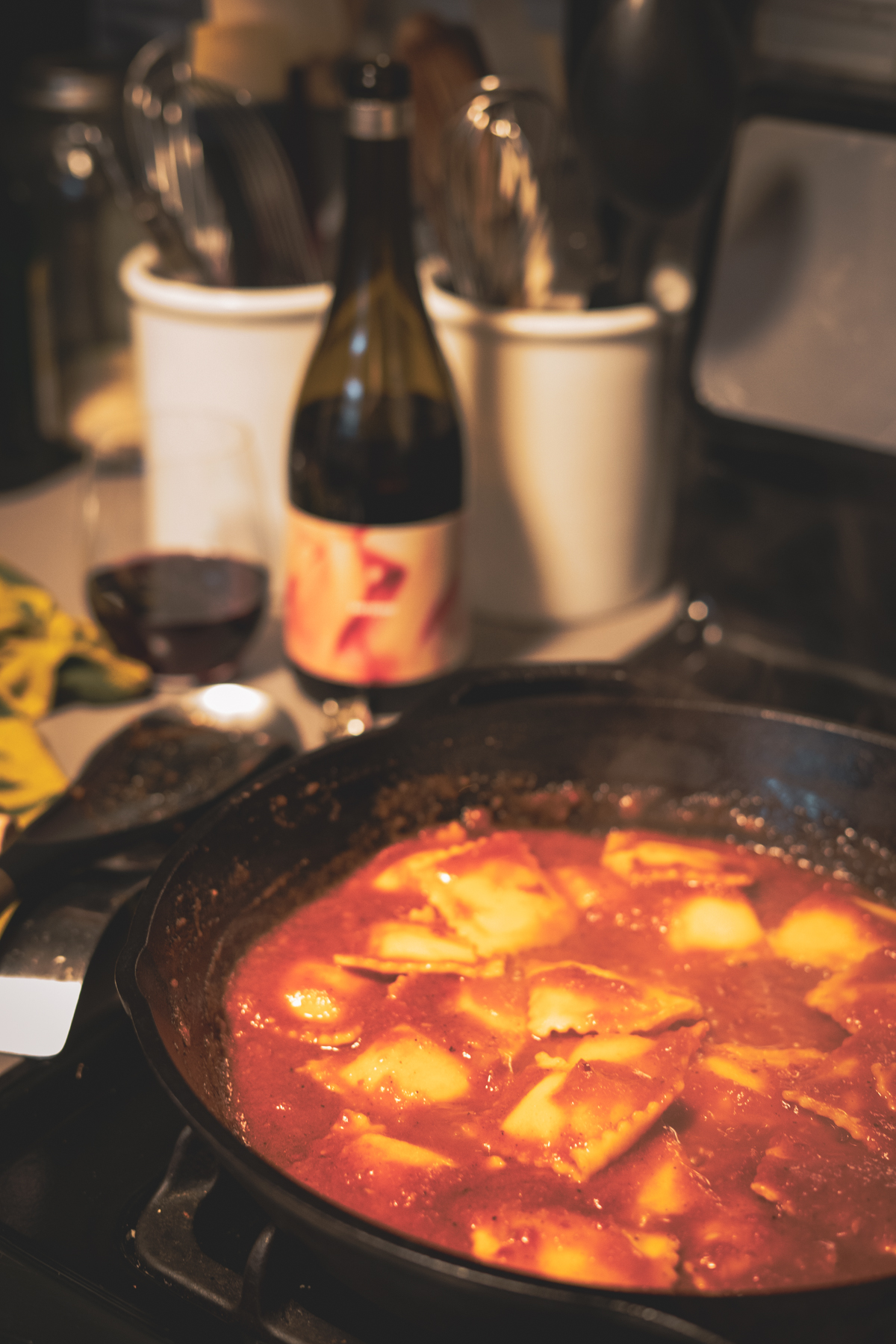
Turn up the heat on your next date night in with this classic Roman dish. Shout out to our friends over at Cayenne Agency for this killer recipe. 🔥
Stock up on any 4+ bottles and score 10% off your next order with ARRABBIATA at checkout through 6/14.
Pasta all' Arrabiata
[time: 30 min] serves 4
- 1 14-ounce can of crushed tomatoes
- 1/2 cup tomato paste
- 2 cloves garlic
- 2 shallots
- 4 tbsp extra-virgin olive oil
- 6 basil leaves
- lots of crushed red peppers, to taste
- 1 1/2 cup Pecorino Romano
- sea salt & black pepper
2. In a saucepan heat olive oil, garlic, and chopped shallots over medium heat. Cook until golden and fragrant.
3. Add tomato can and crush till you reach your desired texture. Continually stir while adding in tomato paste. Begin to spice things up with crushed red pepper! Let simmer on moderate heat for around 8 minutes.
4. Add in pasta and toss, covering noodles evenly. Add a little cooking water if needed to loosen up the pasta.
5. Plate, top with freshly grated cheese, basil and black pepper.
6. Buon appetito!
♻️ We're ReCORK Partners! ♻️
We recently became a private collections partner with @recorkofficial, North America's largest wine cork recycling program!
ReCORK was launched in 2008 by Canadian footwear company SOLE. They are an alliance of businesses and individuals who work together to collect and repurpose natural wine corks. They use these corks to innovate and create natural, sustainable alternatives to petroleum-based foams and plastics.
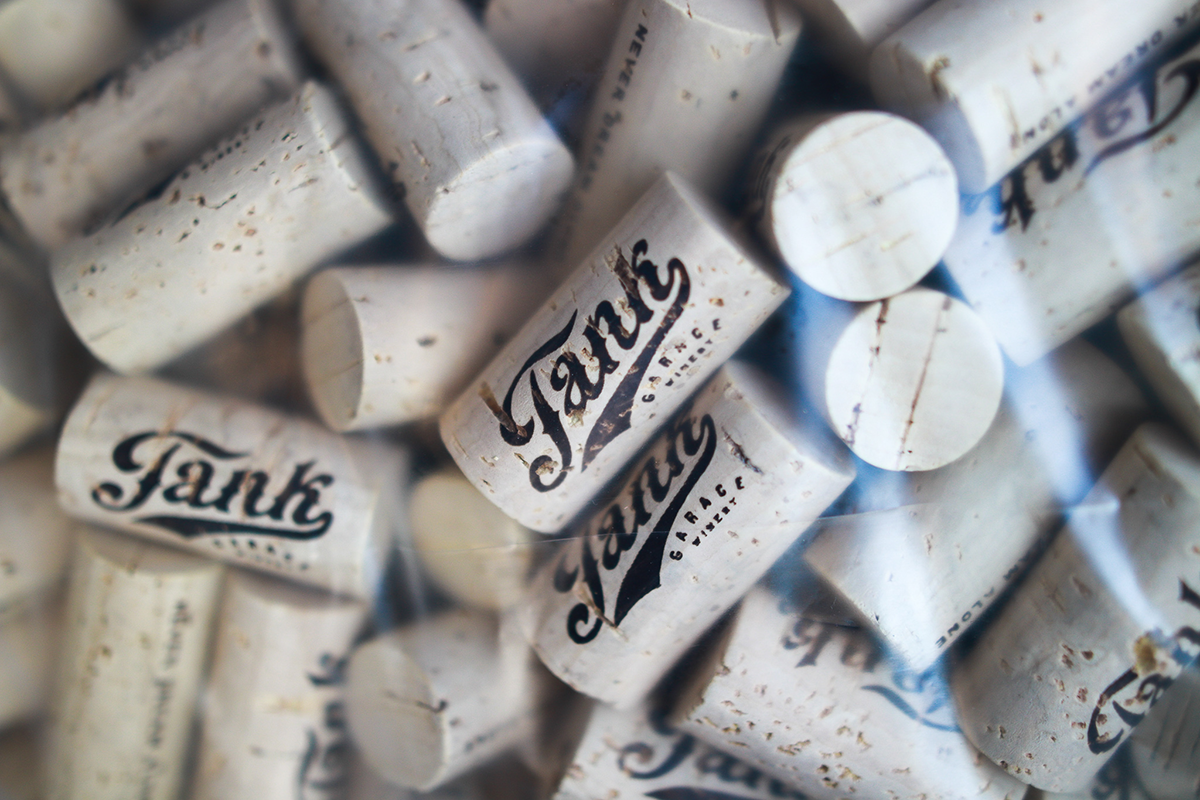
Cork oak trees are fantastic carbon sinks. They absorb carbon from the air we breathe and lock it away in their bark. When the time comes to harvest the bark of the tree, which is what wine corks are made of, it is done so by hand only every nine years. This process causes no environmental damage and not a single tree gets cut down. Harvesting a cork oak tree's bark can extend the tree's lifespan to over 300 years. Every time a cork oak is harvested, it begins to regenerate its bark again. This process is also great for the planet as more carbon is taken out of the atmosphere and locked away in its new bark. The harvesting of the cork oak is one of the finest examples of traditional, sustainable land use. Cork oak forests are harvested for generations and cover nearly 2.7 million hectares of Portugal, Spain, Algeria, Morocco, Italy, Tunisia, and France.
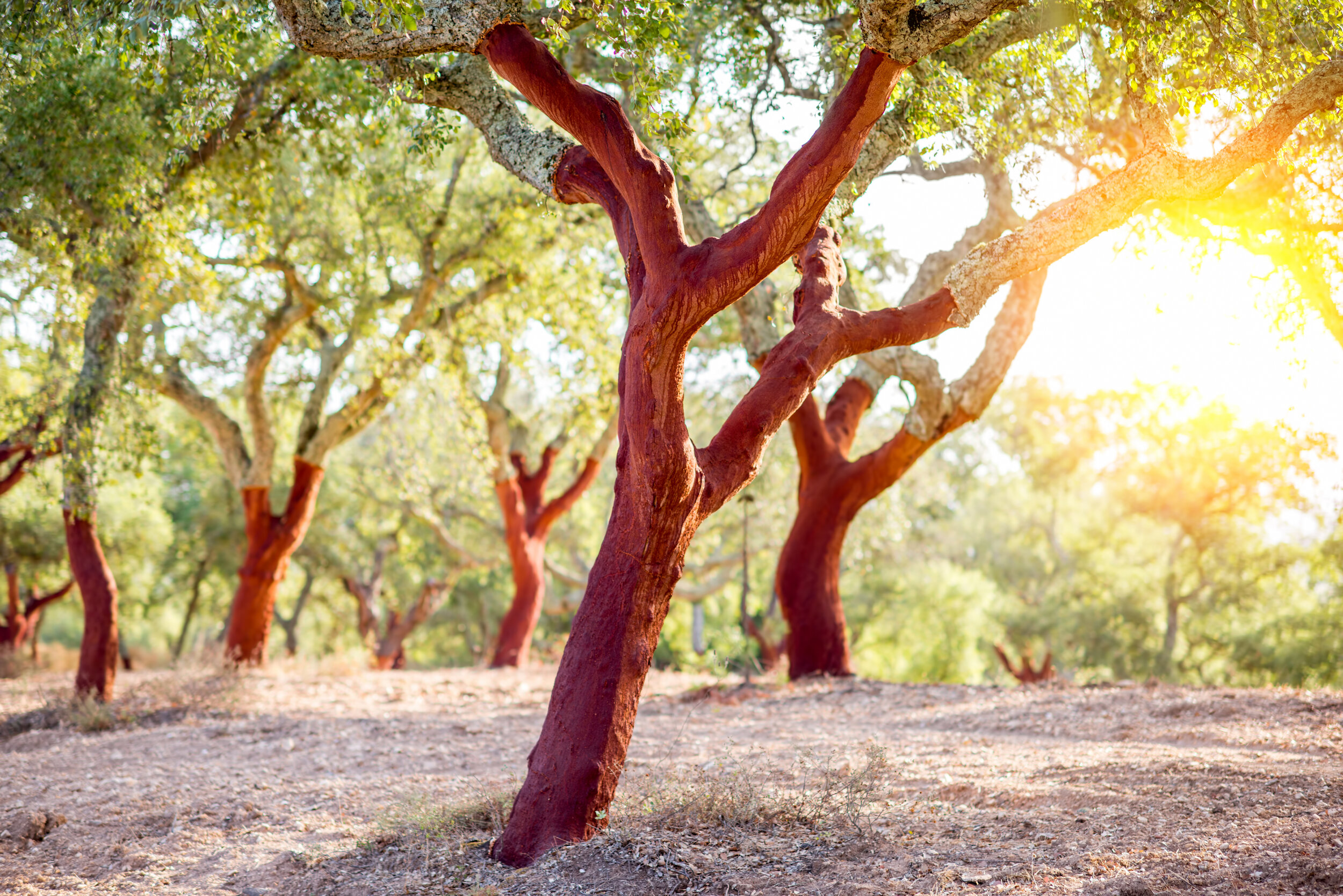
Every year, the equivalent of over 31 billion bottles of wine are consumed worldwide. Too many of the corks used as stoppers in these bottles are thrown away and litter our landfills. 🚛 With the help of thousands of partners across North America, ReCORK has collected over 110 million natural wine corks. 🤩
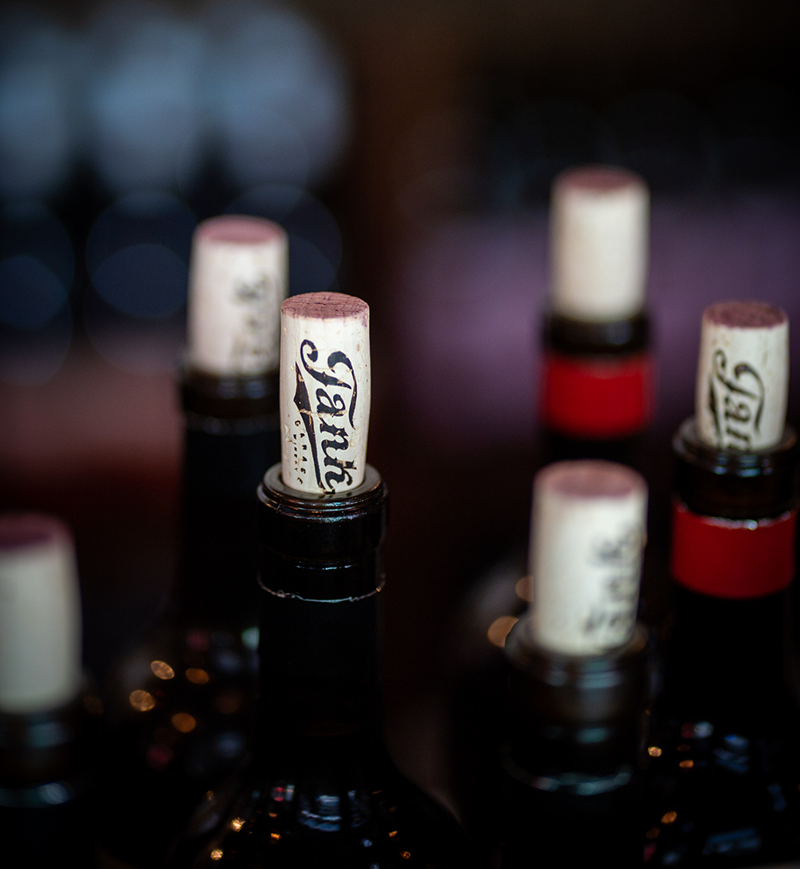
Cork is an extremely versatile material with benefits that extend far beyond being a great bottle stopper. Cork's naturally durable, moisture-wicking, lightweight, and rot-resistant qualities make it perfect for repurposing into a wide variety of eco-friendly products. Check out their 100% recycled cork products here.
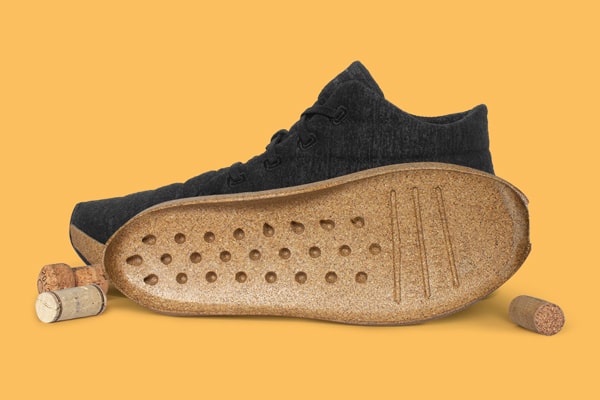
As soon as we learned about the program, we immediately reached out to sign up. At Tank, we know that recycling our corks goes a long way to making a positive environmental impact. Since joining, we have donated over 30 pounds of corks. Recycle your corks and encourage others to do so!

Time to Fuel Up
It's time to fuel up your soul and hit the road.
Harkening back to our roots, Soul Fuel is a dark, luscious Napa Valley blend that is a complete throwback to wines like All or Nothing. That's right, we're back to big Zinfandel blends and vintage motorcycles, and it feels so good. 🍷
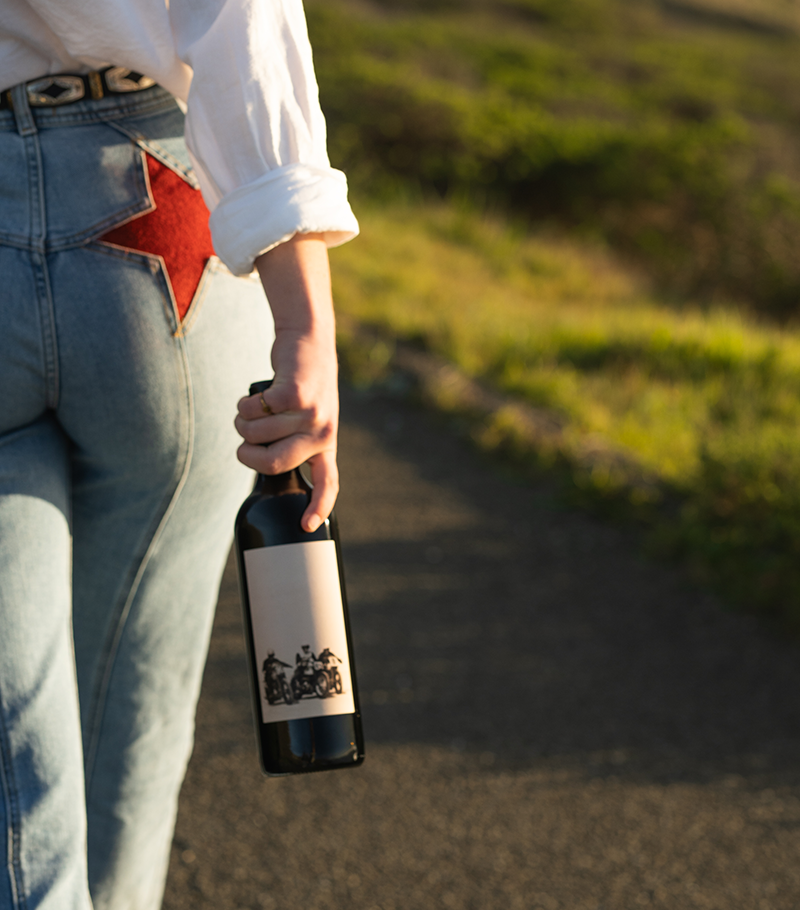
You love Zinfandel. We love Zinfandel. Everybody loves Zinfandel. So we made it the core of this wine. The fruit we got for this blend comes from the legendary valley floor where it enjoyed hot days and cool nights during the growing season which created the intensely concentrated blueberry flavor in this wine.
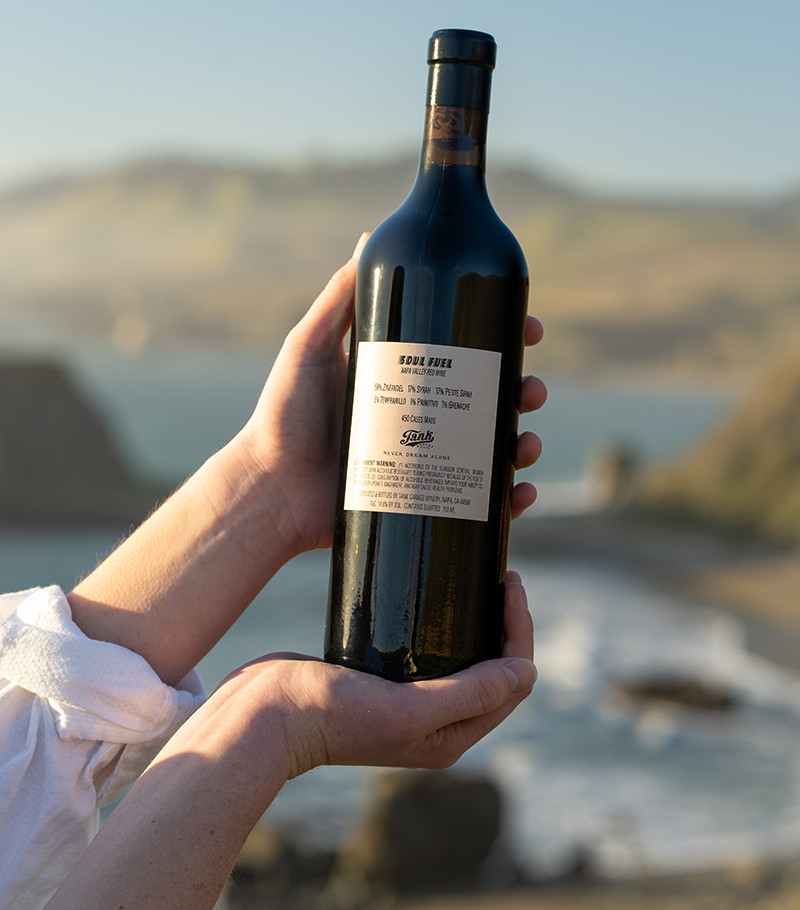
Zinfandel has a long history in Napa. Existing in somewhat protected, historic vineyards may be the main reason it’s held on, if just barely, against the surrounding waves of Cabernet Sauvignon. Zinfandel’s lost past was only recently found within the last 20 years, when Carole Meredith, Ph. D., a professor at the Department of Viticulture and Enology at the University of California at Davis, determined its Croatian roots. Today, Zinfandel is the third-leading wine grape variety in California, with more than 44,400 acres planted, according to The Wine Institute. It is grown in 45 of California’s 58 counties.
Next up in the blend is some peppery Syrah we sourced from the Carneros region, plus some Petite Sirah from Calistoga for tannins, and then a dash of Tempranillo, Primitivo, and Grenache. 🍇

So what is soul fuel? We believe that too often people find themselves burnt out, and that sucks. But we believe burnout comes not from doing too much, but from doing too little of what you love. You know, the shit that makes you smile. The shit that makes you present. The shit that makes you feel invigorated. That's soul fuel. 🪄
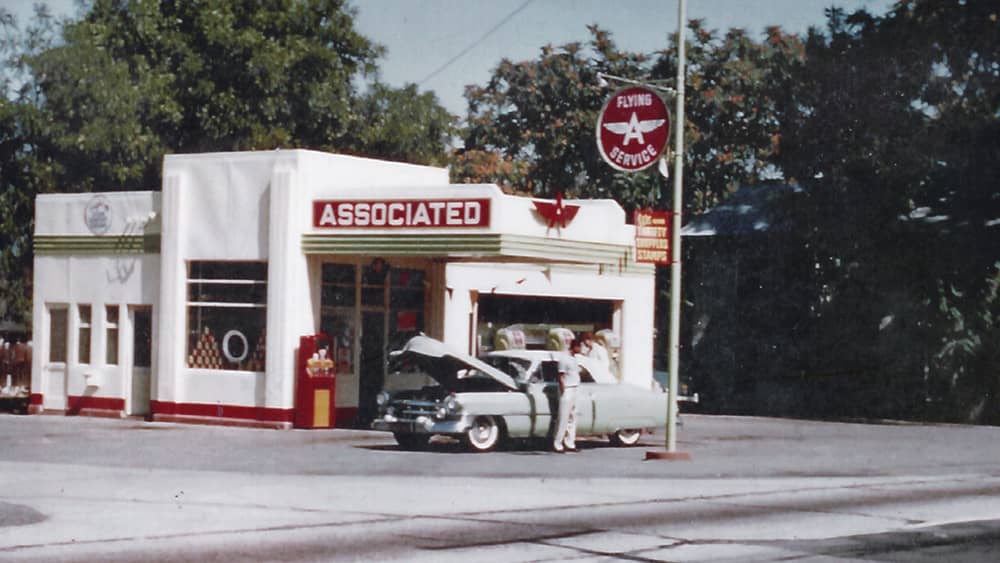
The story behind our love for motorcycles begins with Eddie Bratton, a young fella from Fargo, North Dakota. He bought his first motorcycle bike in 1926 at the age of 15 and eventually rode out from Fargo to California, surviving solely on onion sandwiches and potatoes he'd dig up from rural farms. Eddie started at Hap Jones' Indian Motorcycle dealership in San Francisco, tuning bikes and manufacturing custom "Bratton Cams," his rendition for the nation’s top riders looking for an extra boost.
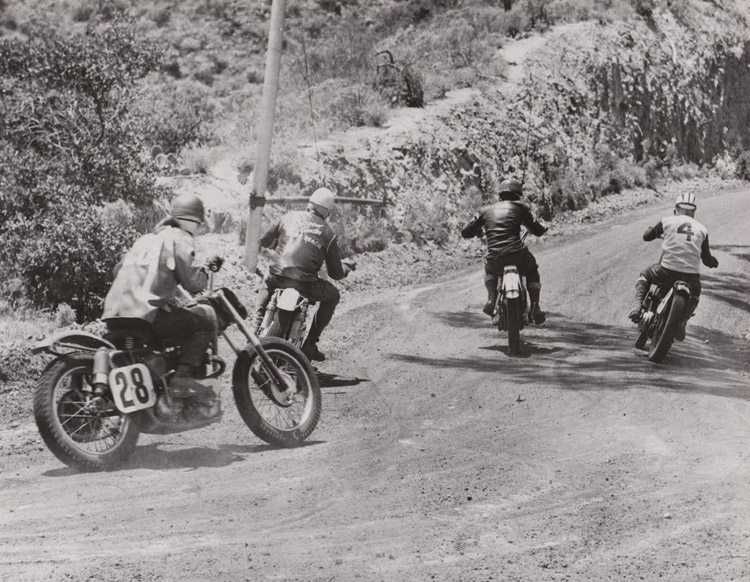
He opened up his shop where Tank sits today, racing and repairing classic bikes until retiring in the early 80s. His custom 1947 Indian Chief still sits in our brick hallway with his trophies lined on the wall behind it. Some of our tasting room staff may say that Eddie still hangs around the back hallways of the garage. True legends never die but don’t worry, he’s not the hell-raiser he used to be.
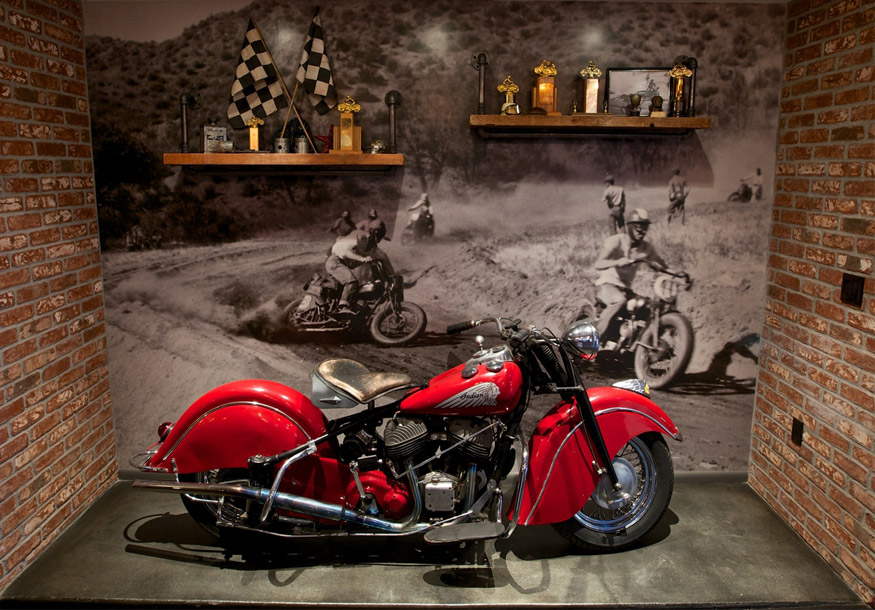
Nothing but speed and excitement ahead. Go fuel up.
Take 10% off when you buy two or more bottles with code: FILLUP
